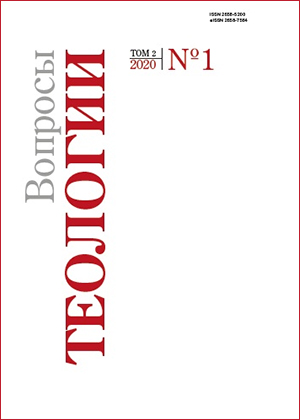Rational theology: The case of Philo of Alexandria
DOI:
https://doi.org/10.21638/spbu28.2020.104Abstract
The phenomenon of rational theology arises at the moment when there is a need to adapt traditional or new religious ideas to contemporary and characteristic intellectual practices. The case of Philo of Alexandria can serve as a good example of what happens when two different cultural traditions begin the mutual translation of discourses. We analyze how this affects the most important theological concepts of Philo on the basis of the treatise De opificio mundi. We pay attention to three points: 1. Philo’s assessment of the cosmogonic and historical narrative of Moses as a metaphysical prologue to his legislation; 2. Philo’s interpretation of natural law and natural being as an allegory of metaphysical and moral law; 3. Aristotle’s “motives” in Philo’s description of the activities of God the Creator. It can be concluded that Philo interprets the Greek philosophical language as a completely acceptable way of reading both the laws of nature and the Jewish Scriptures (he explains this through the “borrowing hypothesis”). As a result, the legislation of Moses appears to be included in the structure of the ancient universe reformed by Philo. Greek philosophical discourse is interpreted as one of the manifestations of Divine Revelation — a point of view that will later be inherent in some early Christian authors (for example, Clement of Alexandria).
Keywords:
rational theology, Philo of Alexandria, Aristotelianism, Platonism exegetics, Old Testament
Downloads
References
References
Downloads
Published
Issue
Section
License
Articles of "Issues of Theology" are open access distributed under the terms of the License Agreement with Saint Petersburg State University, which permits to the authors unrestricted distribution and self-archiving free of charge.




